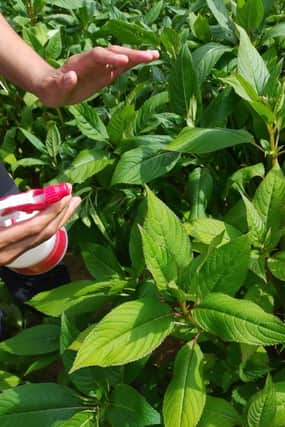Rust used on Hell Wath balsam


Harrogate Borough Council has joined forces with the Centre for Agriculture and Bioscience International (CABI), who are experts in the field of classical biological control and fighting Himalayan balsam (Impatiens glandulifera) with fungal pathogens.
Coun Sam Gibbs, Harrogate Borough Council’s cabinet member for environment, waste reduction and recycling, said: “This is yet another practical solution to help tackle non-native species, following our trial to release Crassula mites at Rossett Nature Reserve in Harrogate to tackle New Zealand Pygmyweed.
Advertisement
Hide AdAdvertisement
Hide Ad“Himalayan balsam is invasive and to tackle it involves lots of hard work, often carried out by volunteers.
“By using this ‘bio-superhero’ we have less of an onerous task in the future.”
Himalayan balsam – also known as Indian balsam or policeman’s helmet – was first introduced into the UK in 1839 as an ornamental plant during the same time period as other invasive plant species giant hogweed and Japanese knotweed.
It colonises river banks, waste ground and damp woodlands, taking light and nutrients during the summer and dies back in winter, leaving river banks bare and increasing the risk of flooding.
Advertisement
Hide AdAdvertisement
Hide AdUntil recently, the main way to tackle it has been ‘balsam bashing’ which involved pulling it up by hand.
The borough council has turned to a more sustainable solution, using a rust fungus called Puccinia komarovii var. glanduliferae, which followed years of research by CABI scientists.
This research showed that the rust only infects Himalayan balsam and does not pose a risk to other species.
“The fungus will not completely eradicate Himalayan balsam at Hell Wath, but it should make the plant less competitive, enabling native wildflowers to re-establish themselves where the non-native species once dominated,” said a council spokesman.
Dr Sonal Varia, project scientist based at CABI said: “Results from releases elsewhere in the UK suggest that the rust can perform well under our climate.”